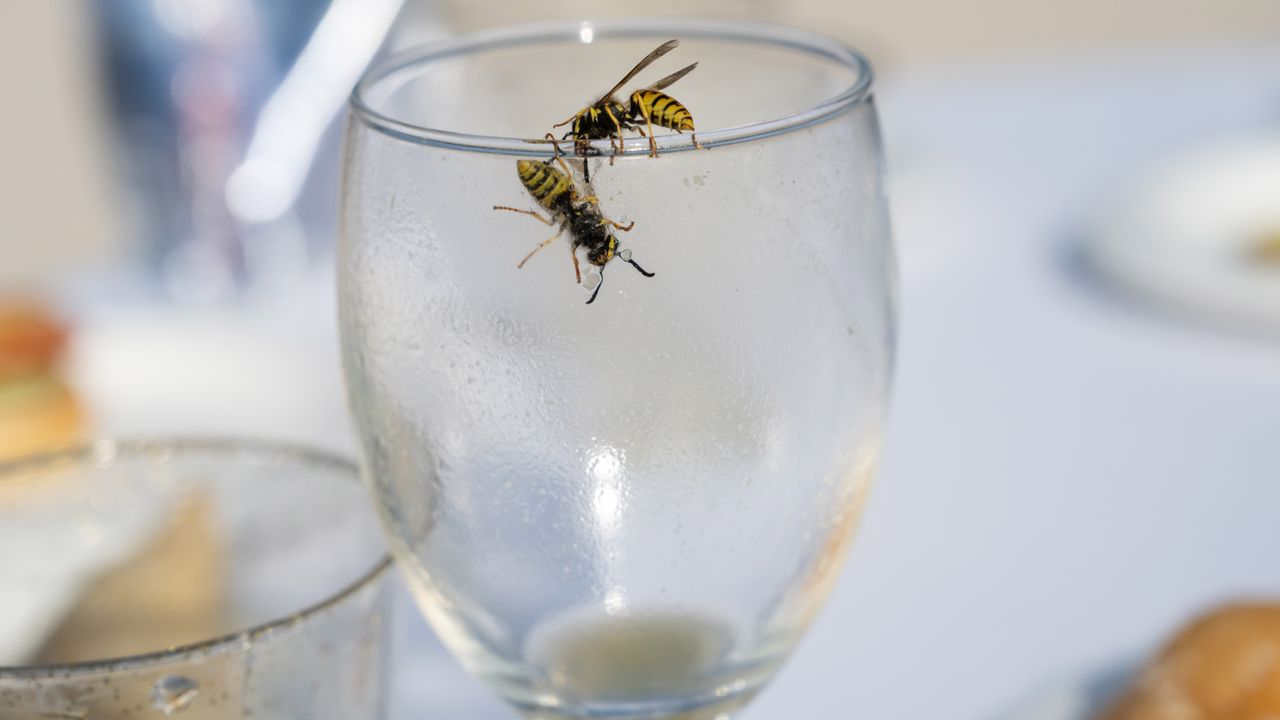As summer draws residents outdoors, the presence of wasps can turn a pleasant gathering into a frustrating experience. Experts, including Scott Evans, CEO of Pink Storage, emphasize that poor storage habits may be luring these pests into yards across various regions. Understanding the reasons for this influx and implementing preventive measures can help homeowners enjoy their outdoor spaces without the threat of painful stings.
Why Are Wasps Attracted to Your Yard?
According to Evans, many homeowners unknowingly create ideal environments for wasps by neglecting proper storage methods. Items left in garden sheds, cushion boxes, or patio storage containers can become attractive nesting sites for these insects. “We often think of storage as just a way to tidy up the garden, but for wasps, it’s a ready-made hideout,” Evans explains. If leftover food or drink containers are left behind, they can quickly attract wasps seeking shelter.
To avoid this scenario, homeowners should ensure that outdoor furniture and storage items are kept in air-tight, weather-resistant containers. Evans advises, “Make sure cushions are completely dry before storing, and where possible, bag them in airtight liners before placing them in boxes. Even a slightly open lid is all a queen wasp needs to move in.”
Effective Strategies to Deter Wasps
There are several practical measures homeowners can adopt to reduce the likelihood of wasps nesting in their yards. These strategies are straightforward and cost-effective, ensuring that outdoor spaces remain enjoyable during the warmer months.
1. **Seal Entry Points**
Wasps can enter buildings through cracks or holes, making it crucial to seal off these entry points. Evans recommends checking for tiny gaps in structures such as sheds or outdoor furniture and using sealants or waterproof tape to close them. “Wasps love quiet, undisturbed areas where they can build their nests safely, so the number one goal is to make your garden less attractive to them,” he states.
2. **Utilize Natural Repellents**
For those seeking non-toxic alternatives, essential oils can serve as effective repellents against wasps. These insects have highly sensitive antennae that detect various scents. Strong-smelling essential oils, such as peppermint, clove, and lemongrass, contain compounds that can overwhelm these receptors and deter wasps from nesting. “Using essential oils in the garden is a great way of keeping wasps from nesting in your garden and encouraging them to find a nesting site elsewhere,” Evans notes.
3. **Maintain a Clean Yard**
Keeping the yard tidy is essential in discouraging wasps. Overgrown or cluttered areas often attract these pests. “Leaving parts of your garden undisturbed is like waving a neon sign that says ‘wasps welcome’,” Evans warns. Regularly rearranging garden furniture, moving unused plant pots, and clearing clutter can help create an environment less appealing to wasps.
While these preventative measures can be effective, it is crucial to note that if a wasp nest is discovered, homeowners should avoid attempting to handle it themselves. Engaging a professional pest control service is recommended to safely remove the nest without risking stings or injury.
In summary, understanding the reasons behind wasp invasions and implementing simple strategies can significantly enhance the enjoyment of outdoor spaces during the summer months. With a few proactive steps, homeowners can create a welcoming atmosphere free from unwanted pests.
